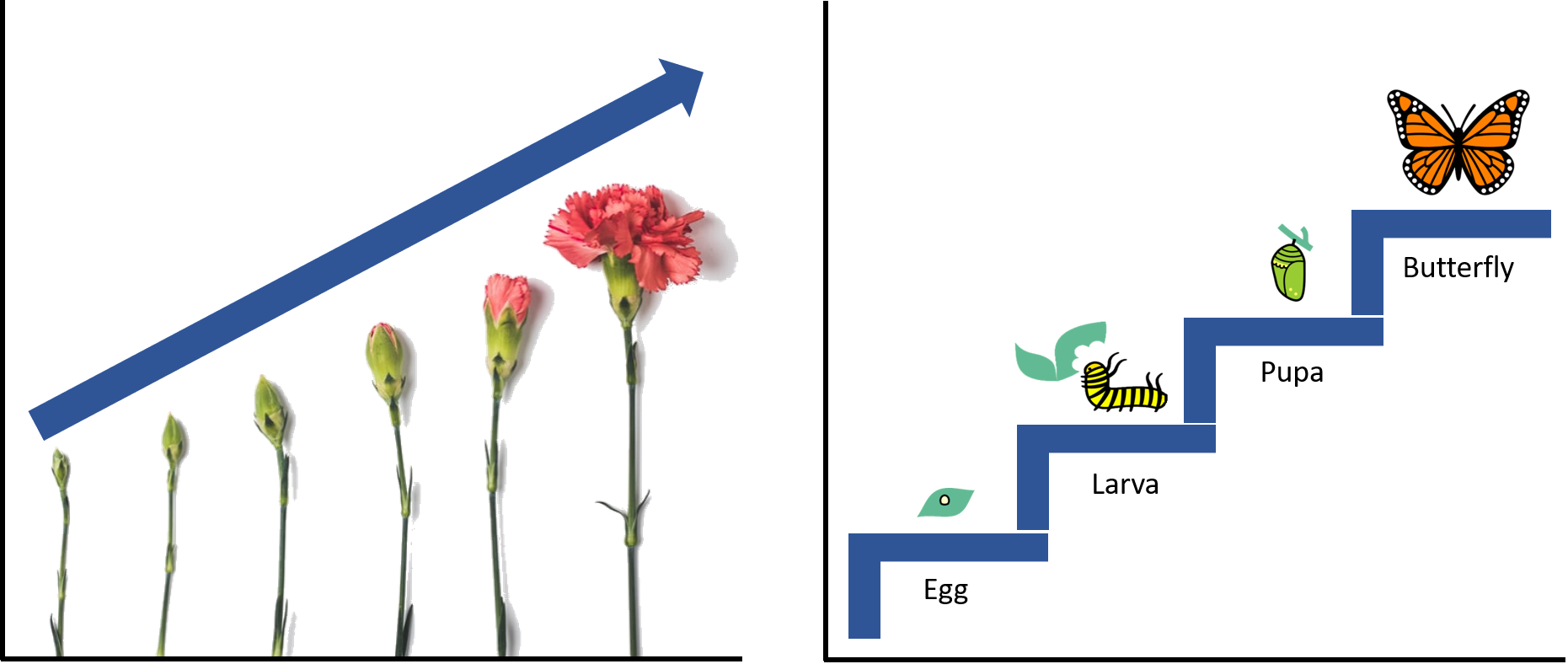
Continuity versus discontinuity: Is human development best characterized as a slow, gradual process or is it best viewed as one of more abrupt change? The answer to that question often depends on which developmental theorist you ask and which topic is being studied. The theories of Freud, Erikson, Piaget, and Kohlberg are called stage theories. Stage theories or discontinuous development assume that developmental change often occurs in distinct stages that are qualitatively different from each other, and in a set, universal sequence. At each stage of development, children and adults have different qualities and characteristics. Thus, stage theorists assume development is more discontinuous. Others, such as the behaviourists and information-processing theorists, assume development is a more slow and gradual process known as continuous development. For instance, they would see the adult as not possessing new skills, but more advanced skills that were already present in some form in the child. Brain development and environmental experiences contribute to the acquisition of more developed skills.
Active versus passive: How much of a role do you play in your own developmental path? Are you at the whims of your genetic inheritance or the environment that surrounds you? Some theorists see humans as playing a very active role in their own development. Piaget, for instance, believed that children actively explore their world and construct new ways of thinking to explain the things they experience. In contrast, many behaviourists view humans as being more passive in the developmental process.
Stability versus change: How similar are you to how you were as a child? Were you always as outgoing or reserved as you are now? Some theorists argue that the personality traits of adults are rooted in the behavioural and emotional tendencies of the infant and young child. Others disagree, and believe that these initial tendencies are modified by social and cultural forces over time.

